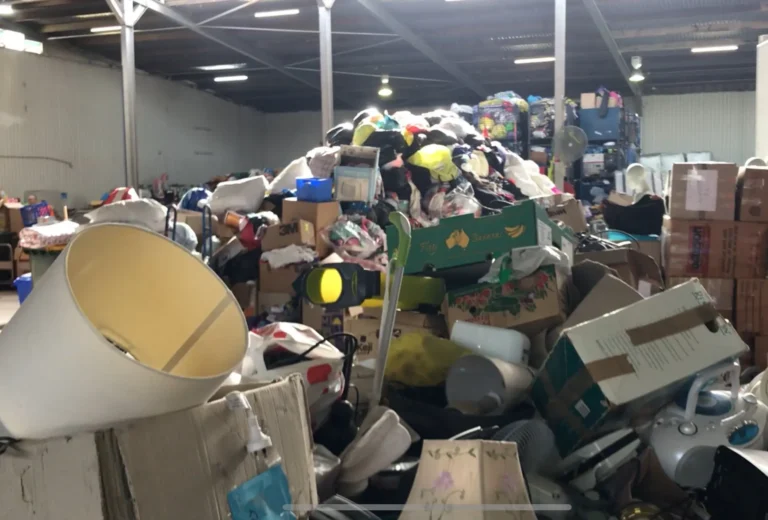Improving the Impact of Your Donations
The Complexities Behind Kindness
Redefining Humanitarian Aid with Innovation

Donations Can Have Negative Effects on Communities
The act of giving is a noble endeavour, but it comes with challenges that demand innovative solution.
At Recovere, we recognise the complexities associated with humanitarian aid, and we’re committed to addressing the pressing issues that hinder effective and efficient support.
The pathway to effective aid is complex, requiring more than just goodwill. It demands a deep understanding of local contexts and the challenges of coordination amongst various stakeholder, including governments, NGOs, and international organisations.
Recovere’s approach is grounded in this understanding, ensuring aid is both respectful and responsive.
Here are some ways donations can cause problems in recovery efforts
Unsolicited Donations: Donations that are not specifically requested by disaster-affected communities can overwhelm relief agencies and hinder their ability to support those in urgent need.
Inappropriate Items: Donors may send items that are not needed or suitable for the situation, such as clothing or food items that are expired or culturally inappropriate.
Logistical Challenges: Managing and transporting and sorting large volumes of donated goods can pose logistical challenges, especially in areas with limited infrastructure or disrupted supply chains.
Disruption of Local Businesses: Donated goods may compete with local businesses, leading to market distortions and undermining the recovery of local economies.
Waste and Environmental Impact: Excessive donations can result in waste and environmental damage, particularly when unsuitable items end up in landfills or natural habitats.
Duplication of Efforts: Without coordination, multiple organisations or individuals may donate similar items, leading to duplication of efforts and inefficient use of resources.
Storage and Distribution Issues: Relief agencies may lack the capacity to store and distribute large volumes of donated goods, leading to delays in getting aid to those in need.
Lack of Cultural Sensitivity: Donated items may not align with the cultural or religious beliefs of the recipients, causing discomfort or offense.
Challenges We Tackle
- Misdirection
- Misuse
- Waste
- Lack of transparency
- Contamination
- Poor condition
- Misaligned priorities
- Logistical complexities
- Potential competition for limited resources
- Cultural insensitivity
- Misaligned priorities
- Undermining local economies
- Fostering dependency
- Contributing to environmental degradation
- Charities facing challenges meeting donor expectations
- Directing donations in accordance with specific requests
- Increased pressure on governments and non-profits to respond effectively
- Emphasised need for tailored assistance.
Our Solution: Recovere
At Recovere, we have designed a best-practice global donation management platform to overcome these challenges and revolutionize the way aid is delivered. Our platform focuses on:
Coordination of Aid
Enhancing collaboration between various organizations involved in aid efforts.
Reducing Unsolicited Donations
Significantly minimizing the burden on local communities by eliminating unwanted items.
Buying Locally
Promoting local purchases to support community economies.
Promoting Community Resilience
Encouraging self-sufficiency and tailored recovery.
Ensuring Quality and Safety
Providing assurance, repairs, warranties, and customer support for recipients of items.
Supporting Long-Term Recovery
Continuously assisting communities even after larger agencies have left.
Providing Real-Time Data
Monitoring recovery rate and effectiveness, community priorities, and emerging issues.
Ensuring Transparency
Boosting donor confidence by showing how their assistance reaches those in need.
Measuring Success: Our Commitment
Success isn’t just about the volume of aid distributed but its tangible impact on communities. We measure our effectiveness in the enhanced resilience of communities, the support of local economies, and the reduction of environmental impact.
Reducing the Drain on Government Resources:
By eliminating the need to physically receive, sort, store, and dispose of unwanted items.
Minimising Landfill Contributions
By reducing the quantity of donations that end up in landfills.
Strengthening Local Charities and Community Groups:
By increasing their capacity to provide essential support.
Boosting Donor Confidence:
By ensuring transparency and demonstrating the impact of their assistance.
Providing Real-Time Data
To monitor the effectiveness of recovery and inform decision-making.
Sharing Insights with Government and Recovery Agencies:
Including speed of recovery, community priorities, and emerging issues.